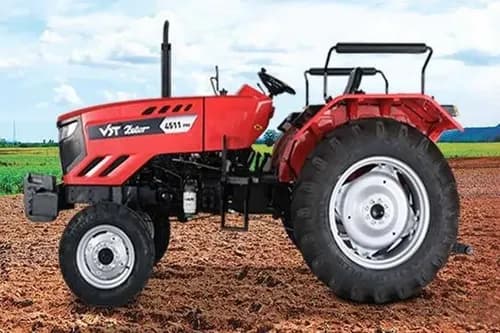Ad
Ad
Ad
A Step-by-Step Guide to Profitable Farming in India

Farming in India has been a way of life for generations, providing livelihoods to millions. However, with the changing dynamics of agriculture and the need for sustainable and profitable practices, farmers are seeking innovative methods to enhance productivity.
India, with its varied climate and fertile soil, can be a top player in global agriculture. However, making a good profit from farming has been tough for Indian farmers. Small land sizes, old-fashioned methods, and market changes make it tricky for them to earn more money. Despite the challenges, there's great potential for India to shine in the field of agriculture.
Adopting modern farming techniques can greatly enhance your crop yield and profitability. Consider practices like drip irrigation systems, which optimize water usage, reduce wastage, and increase crop yields—particularly beneficial in water-scarce regions.
Respond to the growing global demand for organic produce by transitioning to organic farming, fetching higher prices in the market and reducing long-term input costs. Invest in farm machinery such as tractors, harvesters, and ploughs to boost efficiency and lower labour costs.
Furthermore, adopt precision agriculture technologies to optimize resource utilization, minimize waste, and enhance overall crop quality.
This Step-by-Step guide aims to assist both seasoned and aspiring farmers in India to adopt profitable farming techniques. In this article, we have discussed how to do Profitable Farming in India.
Also Read: Top 5 Mahindra Tractors Best for Rice Farming
A Step-by-Step Guide to Profitable Farming in India
Selecting the Right Crop
Choose crops based on soil type, climate, and market demand. Conduct thorough research on the best-suited crops for your region. The initial and most crucial step for profitable farming is selecting the right crop. India's diverse geography and climate offer opportunities for cultivating a wide range of crops.
To make a profitable choice, consider factors like researching current and future market demand. Opt for high-demand crops such as rice, wheat, vegetables, and fruits to enhance profitability. Additionally, choose crops that suit your region's climate and soil conditions, as understanding these factors can significantly impact your success.
Crop Rotation and Intercropping
Implementing crop rotation and intercropping not only maximizes land usage but also improves soil fertility. Rotating crops helps break pest and disease cycles, while intercropping can provide additional income streams.
Implementing a crop rotation system is also beneficial to improve soil fertility and reduce the risk of diseases and pests. Rotating crops like legumes, oilseeds, and grains helps maintain the overall health of your land.
Soil Health Management
Regular soil testing is crucial to determine nutrient levels. Use organic manures, cover crops, and crop residues to enhance soil fertility. Opt for sustainable practices like conservation tillage to minimize soil erosion.
Based on the results, customize your fertilization and soil enhancement efforts. Employ these soil management practices:
- Use organic and chemical fertilizers in the right amounts to provide essential nutrients, avoiding overuse to prevent soil damage.
- Make vermicomposting—an eco-friendly method where earthworms turn organic matter into nutrient-rich vermicompost, serving as a natural fertilizer.
- Practice crop residue management to improve soil structure, nutrient content, and moisture retention.
These practices contribute to maintaining and enhancing soil health for a thriving farm.
Water Management
Adopt efficient irrigation methods such as drip or sprinkler systems to conserve water. Rainwater harvesting can be implemented to harness natural water resources. Timing irrigation with crop growth stages can optimize water usage.
Precision Farming Technologies
Incorporate modern technologies like GPS-guided tractors, drones, and sensor-based monitoring for precision farming. These tools can help in optimizing resource utilization, reducing costs, and increasing overall efficiency.
Quality Seed Selection
Invest in high-quality seeds to ensure a healthy crop. Hybrid seeds and genetically modified varieties can offer higher yields and disease resistance. However, consult with local agricultural experts to choose seeds suitable for your region.
Integrated Pest Management (IPM)
Implement IPM strategies to control pests and diseases without relying heavily on chemical pesticides. This includes using natural predators, crop rotation, and resistant crop varieties. Regular monitoring helps in early detection and intervention.
Farm Mechanization
Integrate modern farming equipment to enhance efficiency and reduce labour costs. Tractors, harvesters, and other machinery can significantly increase productivity, especially for larger farms.
Market Research, Diversification, and Marketing
Stay informed about market trends and consumer demands. Diversify your produce to cater to a broader market. Consider value addition, such as processing and packaging, to increase the value of your products.
Ensuring profitable farming goes beyond cultivation; effective marketing and distribution are crucial.
Participate in local farmer's markets to sell your produce directly to consumers, eliminating intermediaries and potentially securing higher prices. Explore partnerships with agribusiness companies or cooperatives for contract farming—they may offer seeds, technology, and a guaranteed market.
Explore the digital platform by selling your produce through online platforms and apps, expanding your reach and cutting marketing costs. Additionally, investing in cold storage facilities enables you to store produce for longer periods, allowing you to wait for optimal market conditions and maximize your returns.
Financial Planning and Government Schemes
Develop a comprehensive financial plan that includes budgeting, cost analysis, and risk management. Furthermore, government subsidies on tractors and farm equipment can significantly reduce the initial investment costs for farmers, facilitating better access to modern farming technologies.
Explore government schemes and subsidies available for farmers, as these can provide essential financial support. The Indian government offers various schemes and subsidies to support farmers, providing crucial assistance for their agricultural endeavours. Farmers need to stay informed about these opportunities and take advantage of them.
One such scheme is the Pradhan Mantri Kisan Samman Nidhi Yojana, which provides direct income support of up to INR 6,000 to small and marginal farmers.
The Soil Health Card Scheme is another initiative aimed at helping farmers make informed decisions regarding soil nutrient management, leading to improved productivity.
Additionally, the National Horticulture Mission (NHM) promotes horticulture and supports orchard development, with the central government contributing 85 per cent and the state government contributing the remaining 15 per cent.
Also Read: Wheat Farming: Process and Best Tractors for Wheat Farming
Conclusion
Profitable farming in India requires a combination of traditional methods and modern agricultural practices. By incorporating these strategies, farmers can increase their yields and contribute to the sustainability of agriculture.
It's essential to stay informed, adapt to changing circumstances, and adopt innovation to thrive in the dynamic landscape of Indian farming.
Features & Articles
Pradhan Mantri Fasal Bima Yojana (PMFBY): Comprehensive Guide to Crop Insurance, Benefits, Eligibility, and Application Process
PMFBY is a government-backed crop insurance scheme providing financial protection to farmers against crop losses from natural disasters and pests....
12-Nov-24 11:15 AM
Read Full NewsTop 10 Rice-Producing States in India 2024: Rankings, Insights, Cultivation & Trends
Discover the top 10 rice-producing states in India for 2024, covering production volumes, cultivation methods, and popular rice varieties....
16-Oct-24 11:07 AM
Read Full NewsSubhadra Yojana: Empowering Women in Odisha with Rs. 50,000 Financial Support, Eligibility, Benefits, and Objectives
Subhadra Yojana empowers Odisha women with Rs. 50,000 financial support, promoting digital literacy, health, education, and entrepreneurship....
14-Oct-24 12:00 PM
Read Full NewsHow Intercropping Can Help Sugarcane Farmers Increase their Income
Intercropping with sugarcane helps farmers boost income by growing vegetables alongside, offering faster returns and better land use....
03-Oct-24 07:23 AM
Read Full NewsPM-KISAN: Financial Support, Eligibility, e-KYC & Application Process
Pradhan Mantri Kisan Samman Nidhi (PM-KISAN) provides ₹6,000 annually to small and marginal farmers for financial support....
26-Sep-24 09:21 AM
Read Full NewsTop 10 Fastest Growing Cash Crops to Maximize Profits on Your Farm
Top 10 fast-growing cash crops for quick profits, ideal for maximizing farm earnings through short growth cycles and high demand....
05-Sep-24 09:31 AM
Read Full NewsAd
Ad
As featured on:


Registered Office Address
Delente Technologies Pvt. Ltd.
M3M Cosmopolitan, 12th Cosmopolitan,
Golf Course Ext Rd, Sector 66, Gurugram, Haryana
pincode - 122002

























